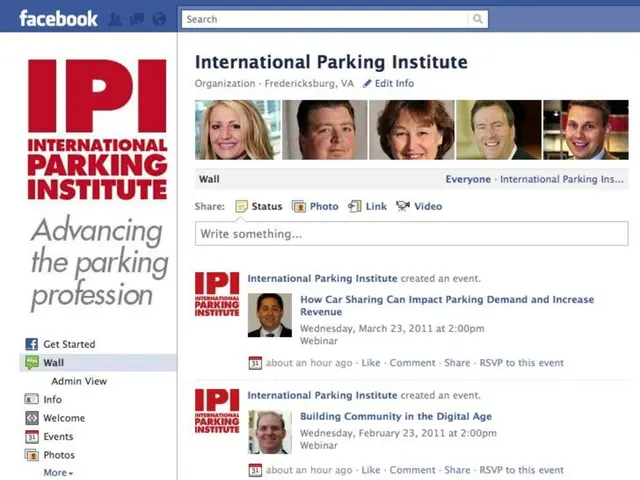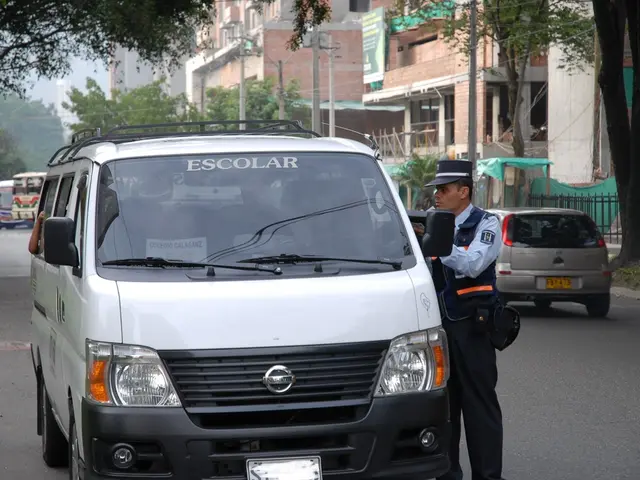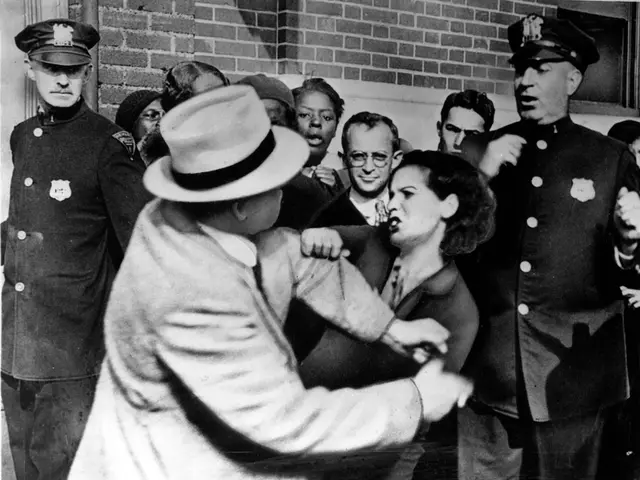Mystery Boxes: A Questionable Fad in Germany Choices Unboxed, Warned as Potential Gambling
Questionable Container under Scrutiny: Potential Violation of Gambling Laws?
In Germany, the intrigue surrounding mystery boxes is spiraling. Experts alarm over similarities to gambling, with possible dangers looming for minors.
The Thrill of the Unknown Package
Online or in stores, mystery boxes offer undelivered packages, Amazon returns, and unwanted tech goods rebranded as excitement. Bargain hunters excitedly snatch these up, hoping the value outweighs the price. Sometimes, though, they're left with almost worthless items.
Industry participants, such as Steve Schuster and his novel merchandise machine, argue that buyers understand the risk. Schuster describes his customers as curious and daring.
Gambling Red Flags
Michael Alexandridis, head of Caritas addiction help services in the Lake Constance-Oberschwaben region, voices concern over the business model. He finds the concept particularly detrimental for children and youth, who are vulnerable to psychological manipulation. Furthermore, mystery boxes may contain inappropriate items.
Online videos of unboxing add to this engagement, imitating casino streams on YouTube and Twitch—promoting the illusion of attractive winnings. However, the actual value of most mystery boxes often drastically undercuts the purchase price.
Alexandridis draws parallels between mystery boxes and gambling, citing long-term consequences, such as financial instability in pursuit of valuable finds. A thorough evaluation of potential risks is essential to grasp the dangerous nature of mystery boxes.
Confusing Legal Landscape
Mystery boxes do not appear in the Gambling State Treaty (GlüStV); thus, it's unclear whether they qualify as gambling. The same holds for online game loot boxes that are based on the same principle.
The GlüStV applies only to explicitly named offers. For example, betting on political events is prohibited, as gambling is only allowed on sporting events according to the GlüStV.
Lamentably, certain offers aren't classified more explicitly within the GlüStV, leaving a vast grey space. This uncertainty extends to mystery boxes and loot boxes. The case law on loot boxes has revealed differing court interpretations in various countries.
Negligent or Ignorant Business Practices?
Schuster asserts that mystery box sales aren't gambling and considers himself exempt from any additional responsibility. He likens the situation to a supermarket cashier who sells chocolate to diabetics.
Yet, the Gray Zone
If mystery boxes are classified as gambling, the market could transform drastically, necessitating a GGL license to sell boxes. Whether small arcade manufacturers can afford this remains questionable.
In an intriguing turn, it would be fascinating to see the Joint Gaming Authority of the States (GGL) tackle this issue, given the growing online market.
The Enrichment Data: An Exploration of Germany's Regulatory Void
- Gambling Definition: Germany classifies gambling as participating in games of chance involving a stake and a possible win. The blurred line between mercy deals and gambling is what places mystery boxes in a precarious regulatory situation.
- Loot Boxes: The digital gaming world has grappled with loot boxes, facing scrutiny for their gamblinglike nature. Despite no ban in Germany, discussions and potential regulations aim to safeguard consumers, primarily minors, from these potentially deceptive products.
- GlüStV and Specific Rules: The GlüStV primarily governs conventional forms of gambling, such as sports betting, casino games, and lotteries. Explicit regulations for mystery boxes or loot boxes are absent under this treaty, leaving room for an unregulated grey area.
- Future Regulations: Currently, specific legislation addressing mystery boxes or loot boxes under German law is sparse. However, ongoing debates and regulatory moves in other jurisdictions indicate future regulations may directly target these products, focusing on consumer protection, particularly for minors.
- Steve Schuster asserts that the mystery boxes he sells aren't gambling, likening the situation to a supermarket cashier selling chocolate to diabetics, but the question remains, What about the potential risks involved in the mystery box fad?
- Michael Alexandridis finds the mystery box business model particularly detrimental for children and youth, as they are vulnerable to psychological manipulation and may be left with worthless items, potentially leading to financial instability and long-term consequences.
- Despite not being explicitly mentioned in the Gambling State Treaty (GlüStV), mystery boxes show similarities to gambling trends, and a thorough evaluation of potential risks is essential to understand their dangerous nature.
- The Joint Gaming Authority of the States (GGL) may have to tackle the issue of mystery boxes as the online market grows, especially if they are eventually classified as gambling, which would necessitate a GGL license to sell boxes, potentially causing a dramatic transformation in the market.








